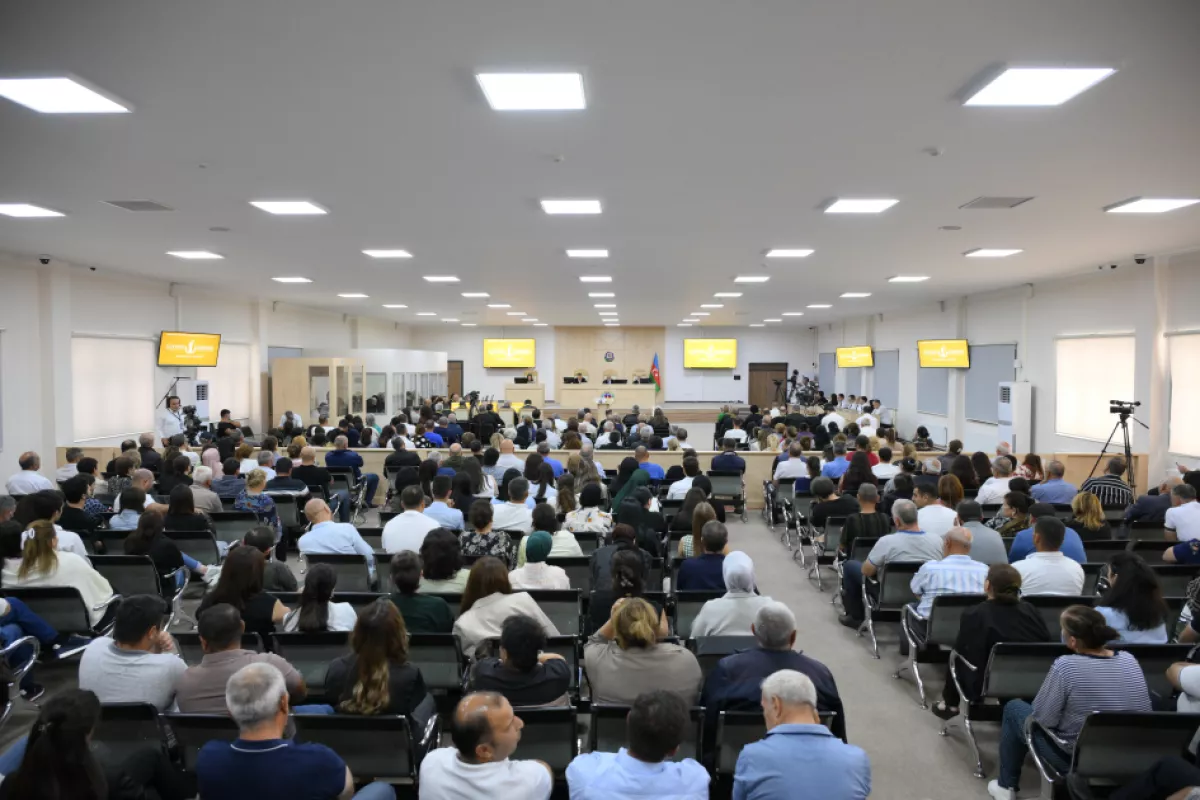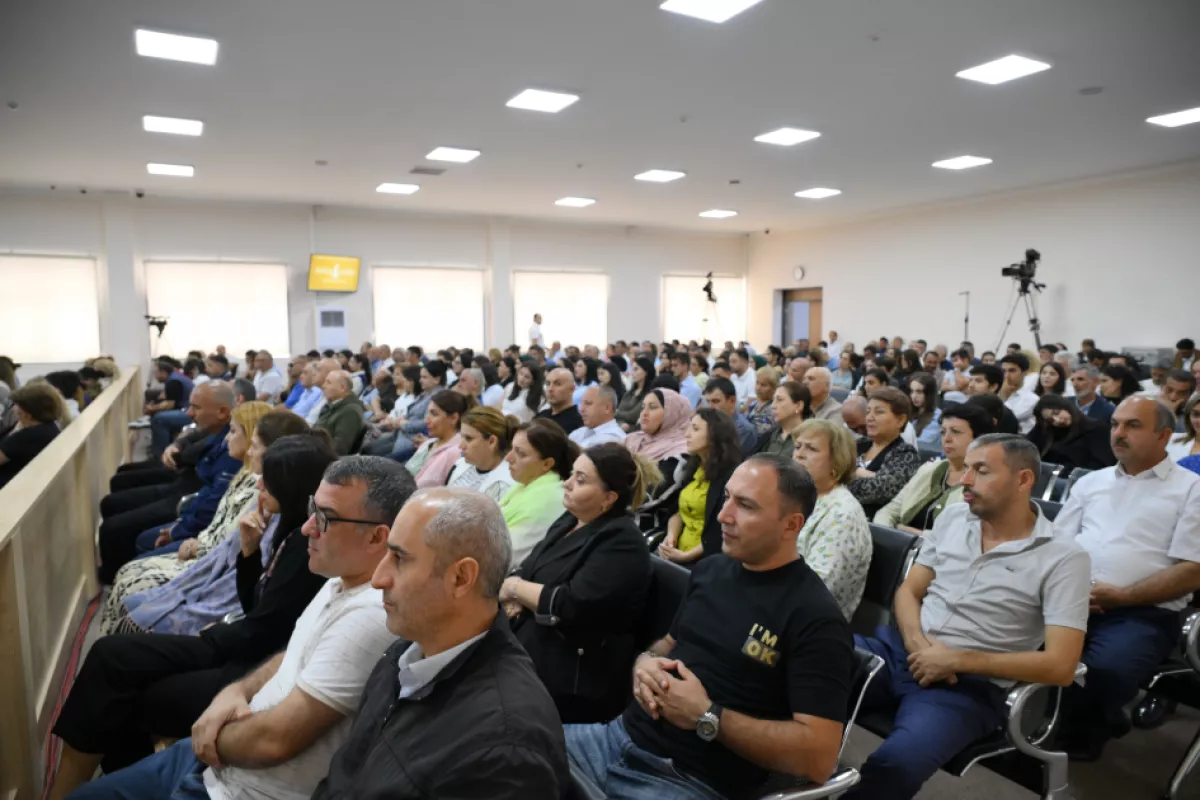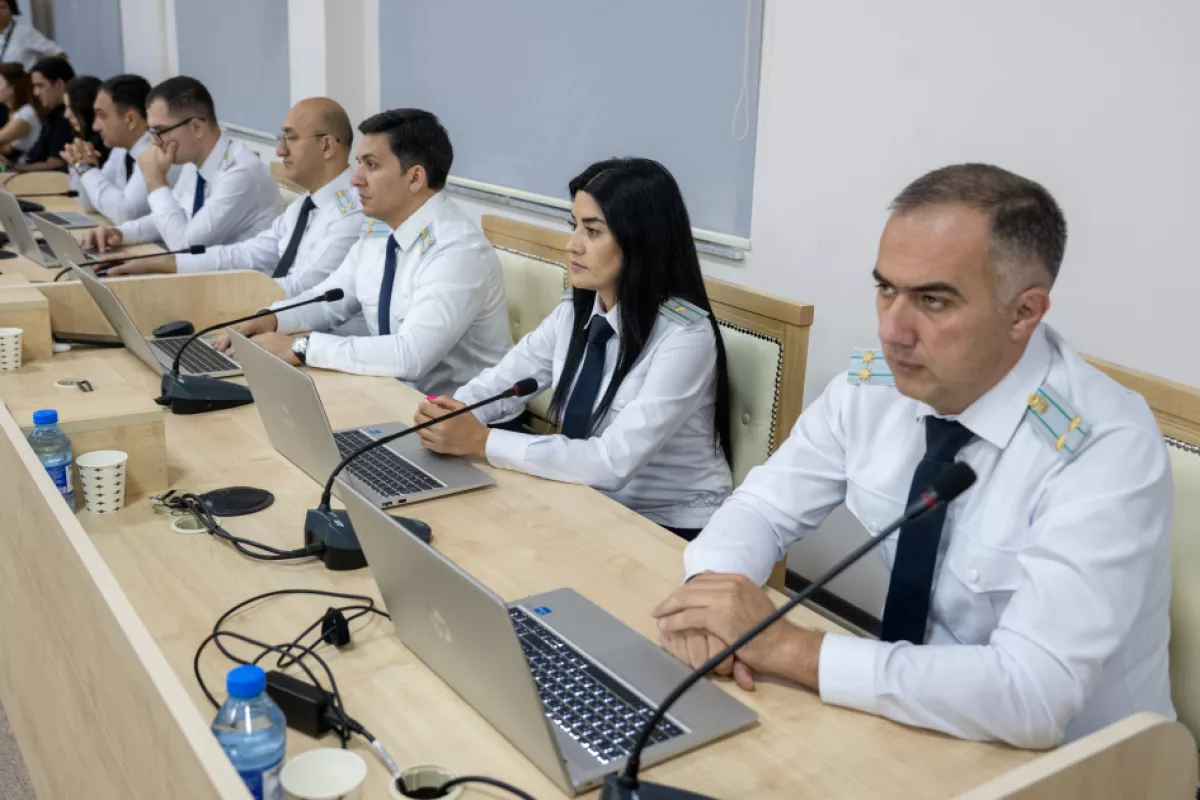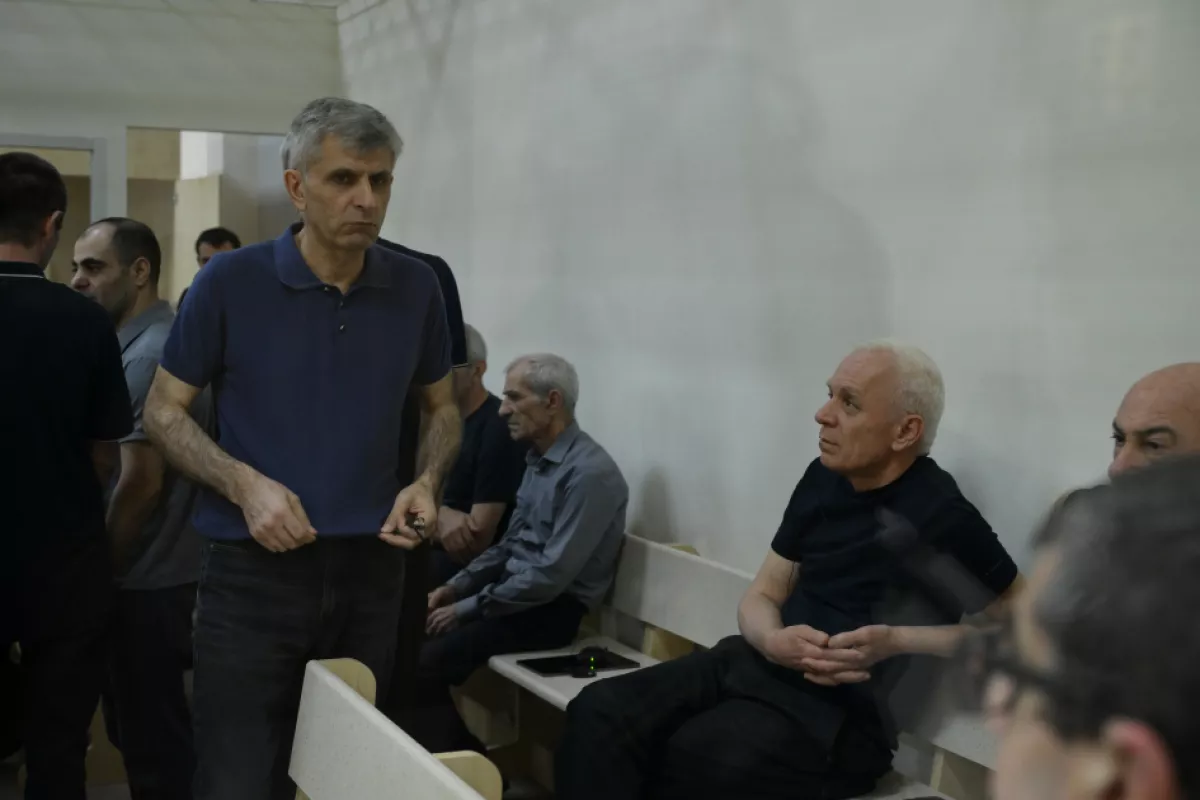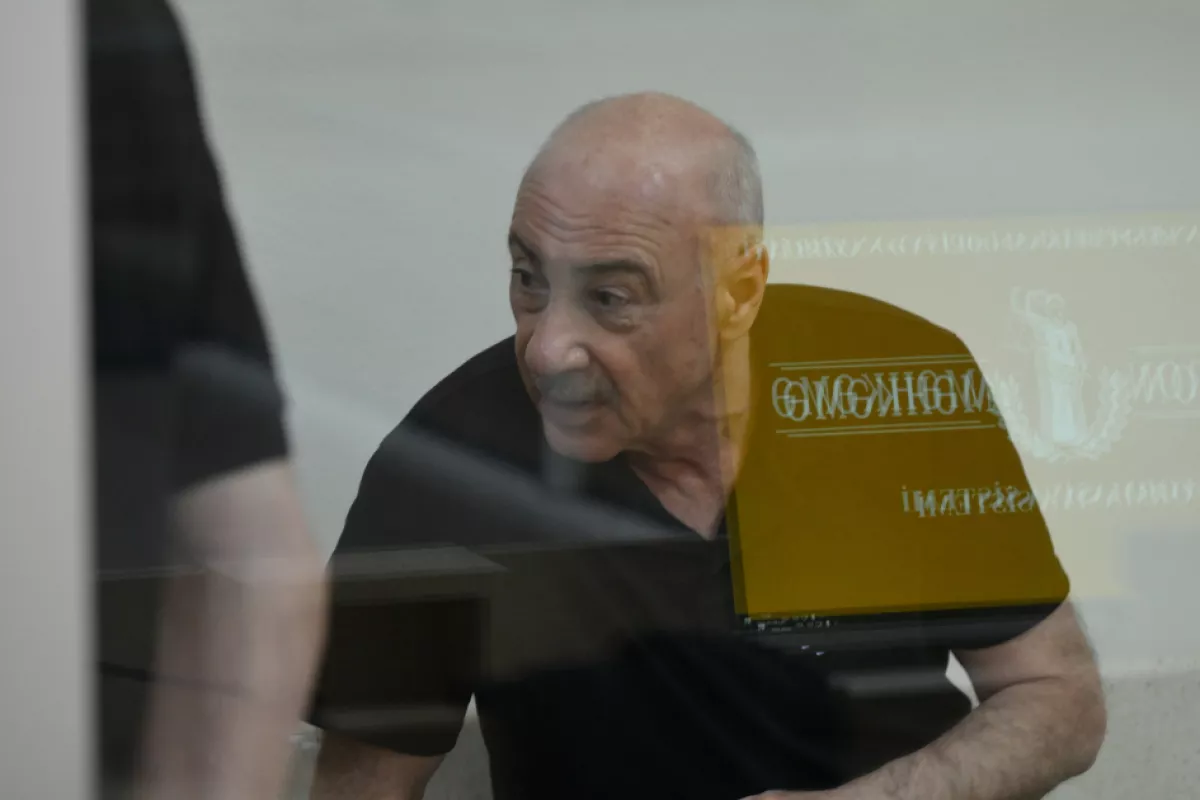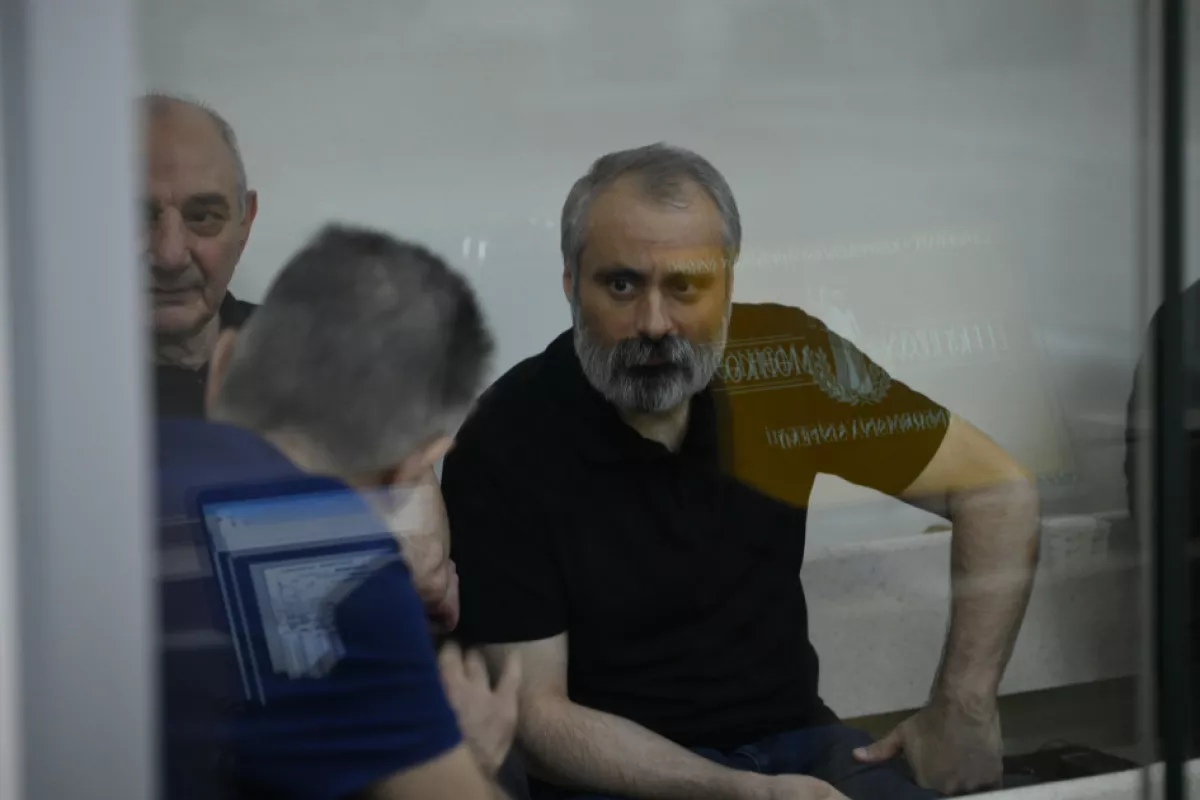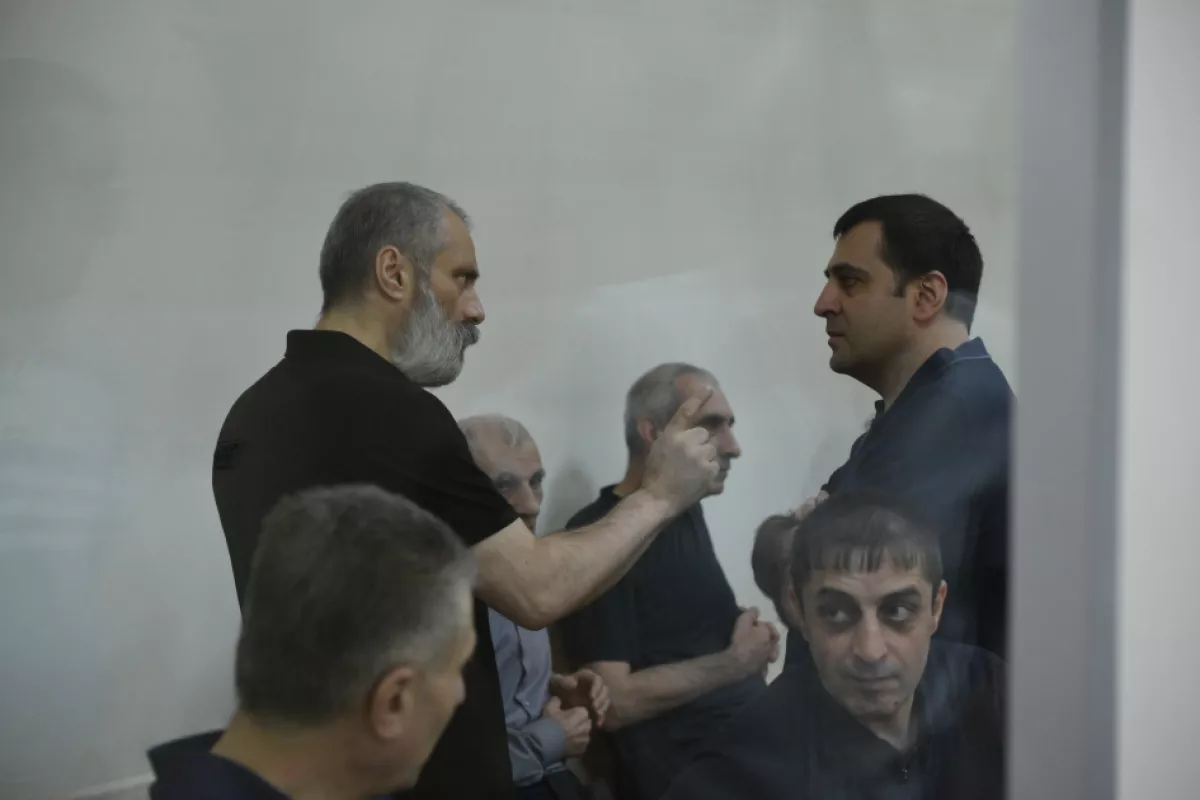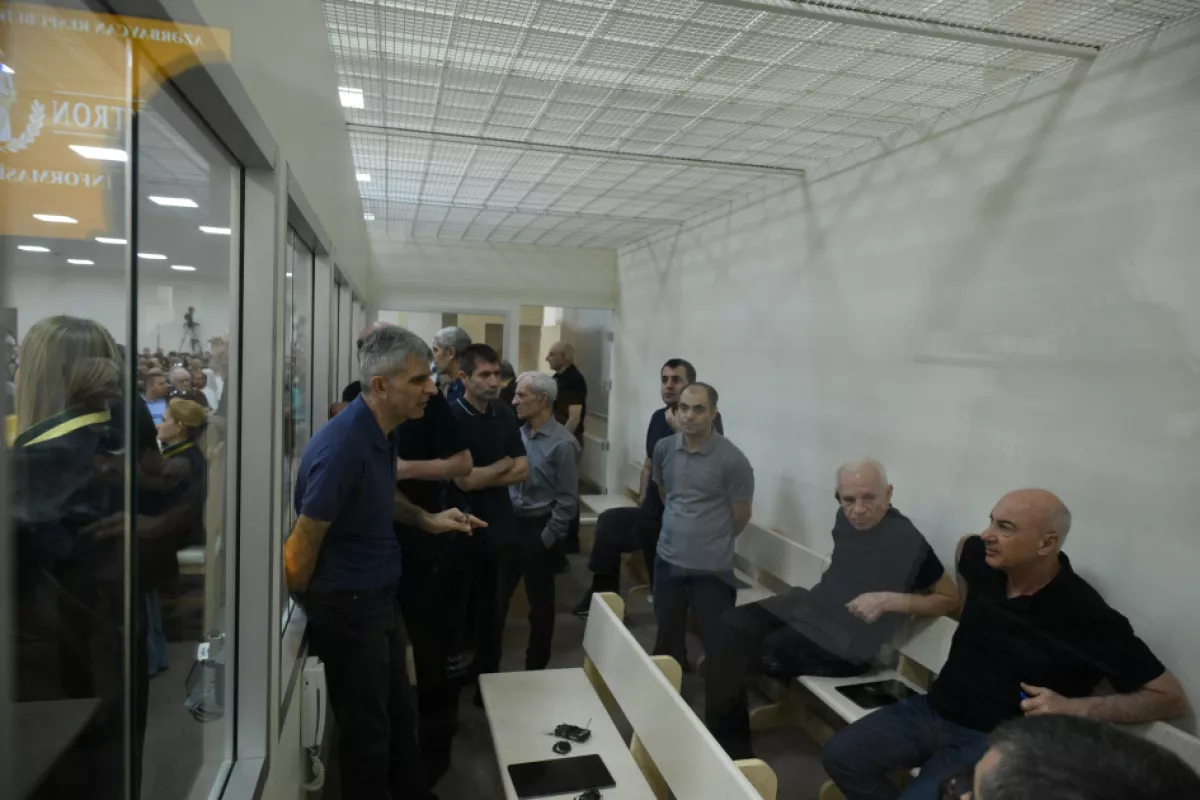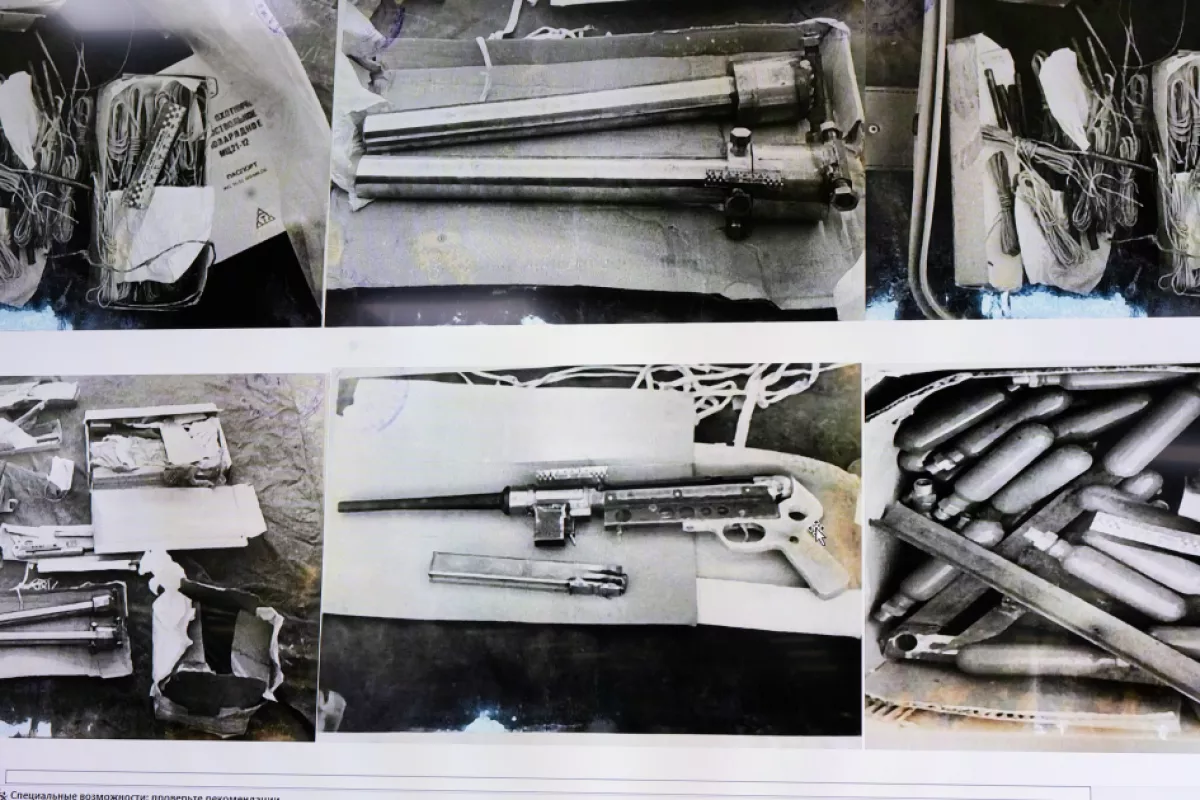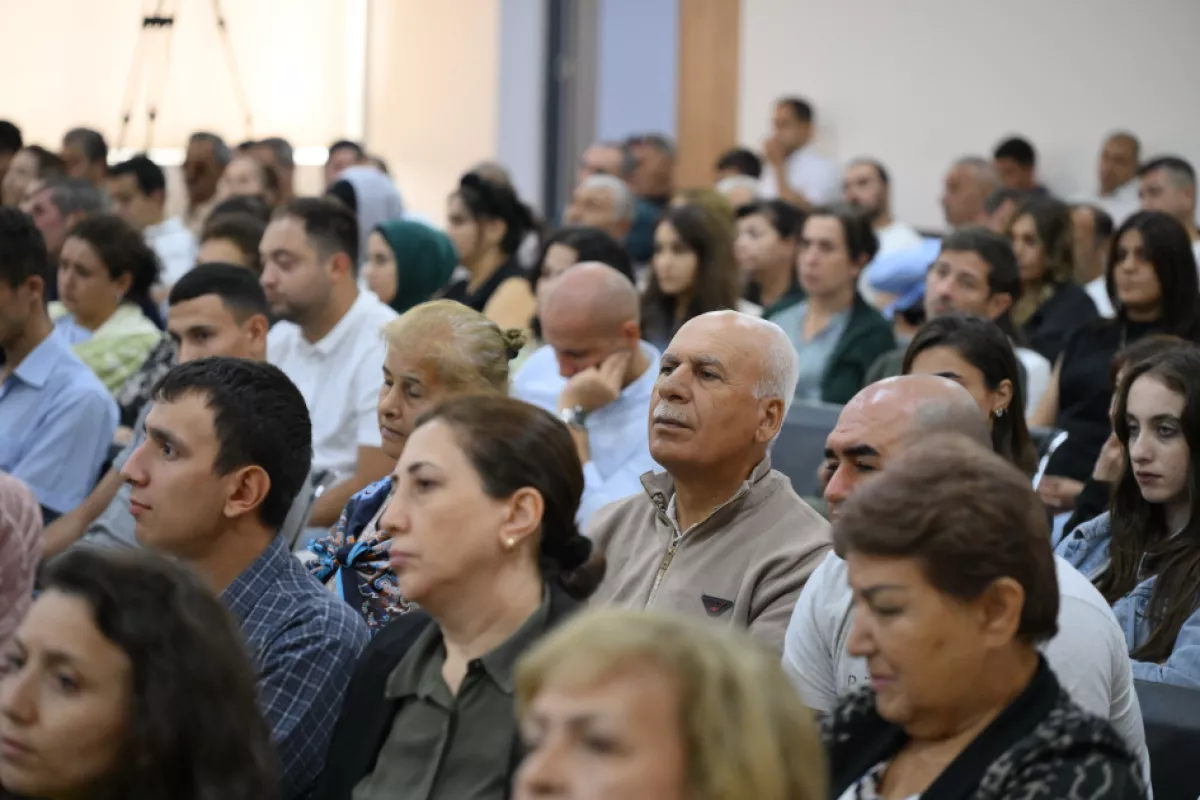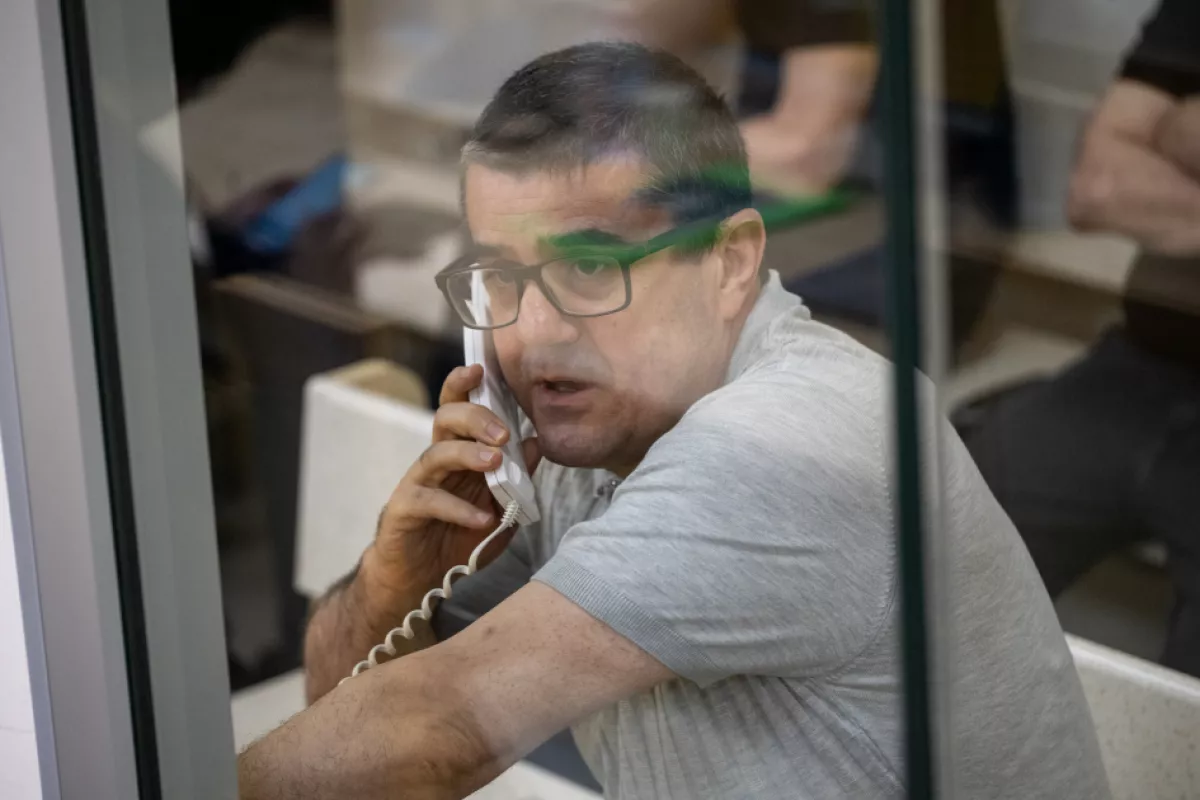Baku court reviews trial documents related to war crimes committed against Azerbaijanis PHOTO
The open court hearing regarding the criminal cases of citizens of the Republic of Armenia—Arayik Harutyunyan, Arkadi Ghukasyan, Bako Sahakyan, Davit Ishkhanyan, David Babayan, Levon Mnatsakanyan, and others—accused of crimes against peace and humanity, war crimes, including the preparation and conduct of an aggressive war, genocide, violation of war laws and customs, terrorism, financing of terrorism, forcible seizure and retention of power, and numerous other crimes resulting from Armenia’s military aggression against Azerbaijan, continued on September 8.
The trial, held at the Baku Military Court under the chairmanship of Judge Zeynal Agayev, with judges Jamal Ramazanov and Anar Rzayev (reserve judge Gunel Samadova), ensured that all accused persons were provided with translators in their preferred language and defense lawyers, Caliber.Az reports via Azertag.
The session was attended by the accused, their defense attorneys, some of the victims, their legal heirs and representatives, as well as prosecutors defending the state’s charges.
The court hearing continued with the examination of documents. It was mentioned that the court will study the documents on a case-by-case basis.
One of the documents read out highlighted the shelling of a car license plate "GAZ-21" belonging to Azerbaijanis on February 22, 1988. At that moment, L.F. Mamedov, A.M. Abdullayev, A.M. Khudiyev, Sh.B. Salmanova, and her underage child were in the car.
The case materials also contained documents on the acquisition and storage of firearms and explosive devices by Sargsyan Armen Grigorievich, as well as on the acquisition and storage of explosives by Artur Ashotovich Sayan, and the facts of mass riots in the cities of Shusha and Khankendi.
Abbasova Zenfira Babur gizi, interrogated as a victim, indicated in her testimony that she lived in the city of Khankendi with her two sons. In 1988, they were daily menaced by Armenians who shouted slogans such as "Down with Azerbaijan, long live the Armenian people" and threatened to set their house ablaze, forcing them to leave. She stated that Slavik Hayrapetyan and his cohabitants repeatedly insulted and threatened them, demanding they vacate their home. On September 18, 1988, the house where they lived was devastated.
The following documents concerned the facts of mass riots in Shusha, Khankendi, and Khojaly on September 18-19, 1988.
According to one of the documents concerning the burning of houses and apartments belonging to Azerbaijani residents in the city of Khankendi and other related facts, Jahangiryan Yuri Osipovich, who was interrogated as a witness, stated in his testimony that Robert Setrakovich Kocharyan, who worked as a “partorg” at the Karabakh Silk Factory, became one of the active members of the Armenian organization “Krunk.”
Later, the organization began propagating national hatred and hostility against Azerbaijanis. He noted that Kocharyan organized rallies and meetings calling for the expulsion of Azerbaijanis and the unification of Karabakh with Armenia, and that he threatened and insulted Azerbaijani employees at the factory. Kocharyan had them dismissed and demanded that other Armenian officials at the plant also dismiss Azerbaijani employees.
The court also announced documents related to the bombing of a bridge at the 14th kilometer of the Khankendi–Shusha highway on October 7, 1989, intended to blockade the city of Shusha, and the bombing of an Ikarus 250/59 bus traveling on the Yevlakh–Lachin road on February 18, 1990, which resulted in passenger injuries.
Other documents presented included evidence of the murder of minor Teyyub Farrukh oglu Suleymanov near the secondary school in Tugh village, Hadrut district; injuries sustained by Mirali Alislam oglu Shahbazov, Ogtay Jahangir oglu Zeynalov, Ilham Yunis oglu Mammadov, Vilayat Safar oglu Adgozalov, and Bulut Huseynali oglu Amiraslanov; the discovery of weapons and ammunition (military clothing, explosives, firearms, and other items) in a civilian helicopter belonging to Armenia in Shusha district on November 3, 1989; the shooting of passenger-freight train No. 23527 traveling from Gafan station to Shayifli station (Zangilan district) at the 36th kilometer of the route; the attempted murder of Matlab Misir oglu Abishov, chief field commissioner for the Chaykend zone of the Goygol District Internal Affairs Department; the injury of militia captain Eldar Khidir oglu Aslanov and Mushfig Rashid oglu Mustafayev; the throwing of an explosive device in the direction of Garadaghly village in Khojavand district; the killings of Sakin Sakit oglu Abbasov and Shahbaz Mursal oglu Guliyev; and the taking hostage of Nariman Bahman oglu Valiyev.
Some of the announced documents were related to the armed attack on the village of Todan on January 12, 1990. It was noted that on that day, at around 5 p.m., the Armenian armed forces, using a helicopter and a foot attack, carried out an armed attack on the village of Todan in Aghjakand settlement. As a result of the shelling of civilians, chairman of the board of the Khanlar collective farm, Alihuseynov Aligara Aliaslan oghlu, Mammadov Abbasgulu Azim oghlu, Gasimov Ruzigar Imran oghlu and Aliyev Bakhtiyar Nadir oghlu were killed on the spot, and several more people were wounded.
The following documents were related to the discovery of weapons and ammunition among the cargo of the plane (which took off from Yerevan) at Khankendi airport; the murder of Neman Ali oghlu Valiyev; the killing of several people as a result of the shelling of the village of Sadarak; the taking Eldaniz Ilham oghlu Aliyev, Bilal Abulfaz oghlu Verdiyev and Sahib Jamil oghlu Mammadov hostage and their illegal detention for 6 days and the use of torture.
In addition, some photos were shown in court regarding the attack on the village of Baghanis Ayrim in Gazakh district. It was stated that documents on this incident were reviewed at previous court hearings, and the victims gave testimony.
The court proceedings will continue on September 11.
Fifteen defendants of Armenian origin are accused in the criminal case concerning numerous crimes committed during the aggressive war waged by the Armenian state - including the aforementioned criminal association - on the territory of Azerbaijan, in violation of domestic and international legal norms.
These crimes were committed for the purpose of military aggression against Azerbaijan and were carried out under the direct leadership and participation of the Armenian state, officials of its state institutions, its armed forces, and illegal armed formations, through their written and verbal orders, instructions, and guidelines; material, technical, and personnel support; centralized management; as well as under strict control and under the leadership and direct or indirect participation of Robert Sedraki Kocharyan, Serzh Azati Sargsyan, Vazgen Mikaeli Manukyan, Vazgen Zaveni Sargsyan, Samvel Andraniki Babayan, Vitali Mikaeli Balasanyan, Zori Hayki Balayan, Seyran Musheghi Ohanyan, Arshavir Surenovich Garamyan, Monte Charles Melkonyan, and others.
The following individuals - Arayik Vladimiri Harutyunyan, Arkadi Arshaviri Ghukasyan, Bako Sahaki Sahakyan, Davit Rubeni Ishkhanyan, David Azatini Manukyan, Davit Klimi Babayan, Levon Henrikovich Mnatsakanyan, Vasili Ivani Beglaryan, Erik Roberti Ghazaryan, Davit Nelsoni Allahverdiyan, Gurgen Homeri Stepanyan, Levon Romiki Balayan, Madat Arakelovich Babayan, Garik Grigori Martirosyan, and Melikset Vladimiri Pashayan - are being charged under the following articles of the Criminal Code of the Republic of Azerbaijan: Article 100 (planning, preparing, initiating, and waging a war of aggression); Article 102 (attacking persons or organizations enjoying international protection); Article 103 (genocide); Article 105 (extermination of the population); Article 106 (enslavement); Article 107 (deportation or forced displacement of population); Article 109 (persecution); Article 110 (enforced disappearance of persons); Article 112 (deprivation of liberty contrary to international law); Article 113 (torture); Article 114 (mercenary service); Article 115 (violation of the laws and customs of warfare); Article 116 (violation of international humanitarian law during armed conflict); Article 118 (military robbery); Article 120 (intentional murder); Article 192 (illegal entrepreneurship); Article 214 (terrorism); Article 214-1 (financing terrorism); Article 218 (creation of a criminal organization); Article 228 (illegal acquisition, transfer, sale, storage, transportation, and possession of weapons, ammunition, explosives, and devices); Article 270-1 (acts threatening aviation security); Article 277 (assassination of a state official or public figure); Article 278 (forcible seizure and retention of power, forcible change of the constitutional structure of the state); Article 279 (creation of armed groups not provided for by law); and additional articles.




